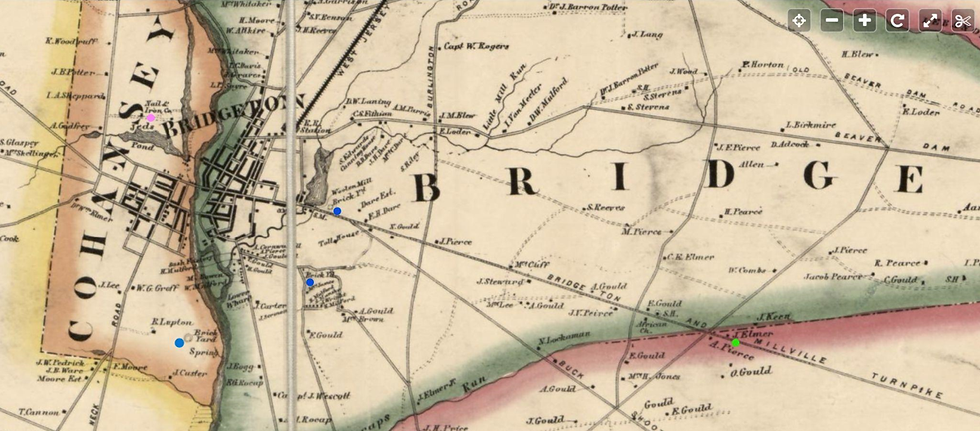Why We Do What We Do
- Flavia Alaya

- Nov 23, 2019
- 2 min read
Notions about historic museums as little more than irrelevant old attics or ‘jewel-boxes’ can stand in the way of the real enjoyment and appreciation of history. As preservationists—even of a place as beloved as the ‘Nail House’—we have to deal with the prejudice that what we do is passé—that investing good money in the accurate repair of historic structures (even those that might serve the public like this one)--if good at all--is for richer, more blessed communities than ours. Given the demographics of Bridgeton and Cumberland County and the local economy (they say), historic preservation is irrelevant—unwanted—a waste of public resources, public spirit and time. Bah, humbug.
We’re out to change that perception—which, in any case, is no longer at the cutting edge of public policy. The movement for sustainable communities has made it good again to think there's a future in the past. And there are real answers to questions about what Bridgeton young people have to gain from learning local history.
The first is that local history is always more than local. Over the past decade, our own interactions with Bridgeton students and their parents, many from other places, has shown how valuable (if not invaluable) it is for them to know this city was once a hub of progressive activity—proudly dubbed ‘the metropolis of South Jersey.’ They feel good about knowing they are part of a deep dye of cultures, long-woven into the spirit of this place. And as they learn such things and make new creative work that builds on them, they understand they are doing something that serves their present needs even as it enhances the future for others.
We are out to prove that history is always relevant, especially in a democracy. In the fictional world of George Orwell's 1984, there was good reason for what he called the 'oubliette’—the ‘insinkerater’ of truth and historical facts—because it was a world that hated freedom and thrived on thought control. Even now—and for the same reason, erasing the past is precisely what they do in authoritarian regimes. Denying what was once possible is a secure way of frustrating dreams of what might still be possible for the future.
Hopefully, that practice does not thrive here—and most crucially, not now! In this way too the local is also global. Knowing just how this place called Bridgeton was transformed over time is a key to understanding the past and potential transformation of every place. And it is not just valuable insight but practical knowledge—a heritage of skills and attitudes and values that we can use to directly impact our futures, near- and long-term.
And more: It is a heritage that will extend beyond ourselves to our children and (yes, if the species survives) our grand- and great-grandchildren too!






Comments